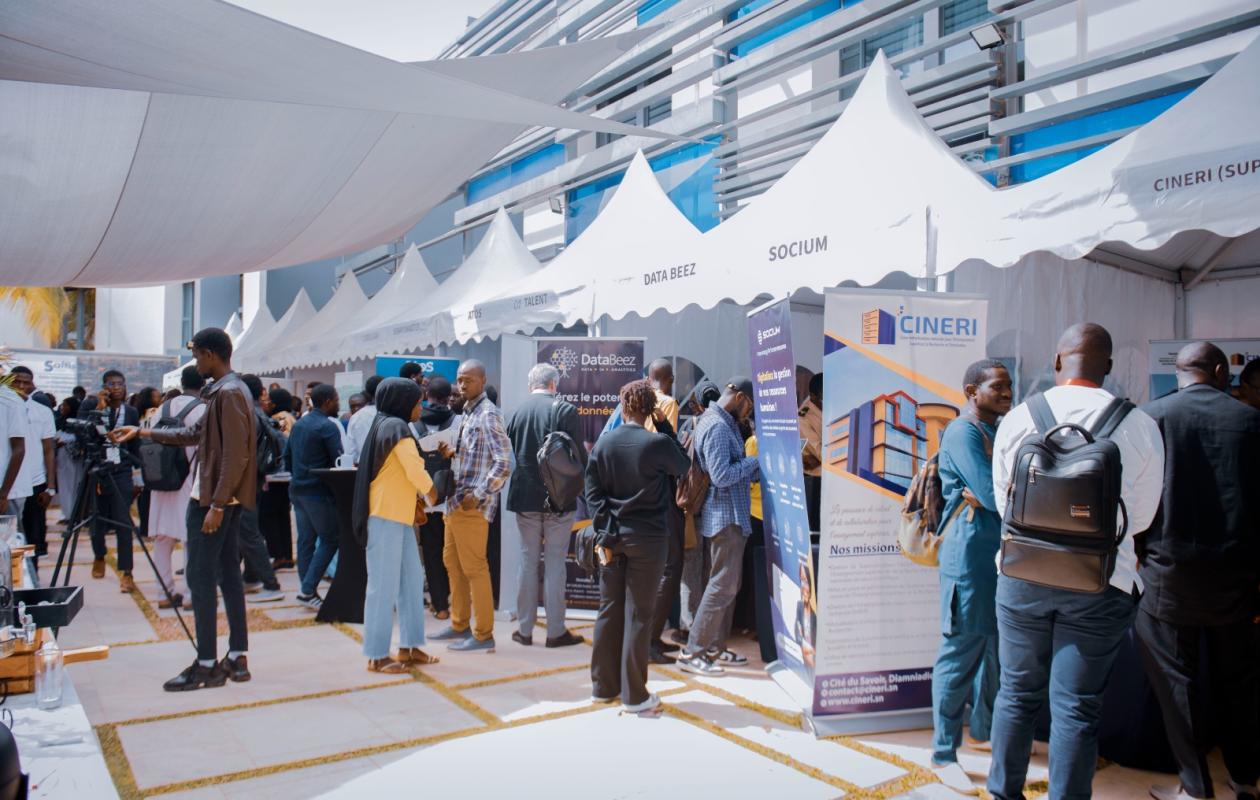
SALTIS 2025 : « L’IA n’est plus une promesse lointaine », Wedji Kane
Within the walls of the Museum of Black Civilizations, the future of African technology was being shaped on November 25 and 26, 2025. Senegal hosted the annual Artificial Intelligence and Innovation Technology Fair (SALTIS). This event was supported by the Ministry of Communication, Telecommunications and Digital Affairs (MCTN) and the Presidency of the Republic. SALTIS 2025 was held under the theme "Artificial Intelligence and Multi-Sectoral Uses: For Inclusive and Sustainable Technological Sovereignty." This forum brought together public, scientific, economic, and entrepreneurial leaders from around the world. It supports the country's mission to establish a sovereign technological ecosystem. The goal is to make science, data, and innovation powerful drivers of social development and impact.
During the opening ceremony, Wedji Kane, general coordinator of SALTIS 2025 and co-founder of the Institute of Algorithms of Senegal (IAS), reflected on the symbolism of the venue: “We are opening this edition in a place that holds a special history and meaning for us: the Museum of Black Civilizations. A space designed with the idea that Africa must always maintain the link between what it inherits... and what it invents. This museum reminds us of a simple truth: each era has produced its own knowledge and tools. Today, it is up to our generation to meet the challenge of artificial intelligence.”
She then emphasized the tangible presence of AI in citizens' daily lives. According to her, the technology is no longer a distant prospect: "AI is no longer a distant promise. It's here: in schools, in healthcare, in agriculture, in businesses, in public services, in our daily lives, in our homes, in our relationships. Our responsibility, as a country and as a society, is to ensure that these technologies remain useful, responsible, inclusive, and above all, humane. And that is precisely why SALTIS exists: to bring people together, to understand, to explain, to train, and to build together."
Furthermore, the general coordinator highlighted the composition of the organizing team: “SALTIS is driven by a young, dynamic, and ambitious team. But this youth does not move forward alone. It relies on its elders. It is this alliance between generations, this circulation of experiences and values, that allows our country to move forward without losing its course.”
The event has experienced rapid growth in its three years of existence. It has positioned itself as the essential platform for artificial intelligence in Francophone Africa. Startups are offering concrete solutions for the country. Institutions are embracing innovation and testing new approaches. The gathering welcomes women and men from the diaspora, the sub-region, the Maghreb, Europe, and America.
The two-day program includes conferences, roundtables, workshops for children, and demonstrations. Experts will share their work and insights. Wedji Kane emphasized that SALTIS's work extends far beyond these two days of the summit. "Throughout the year, our team works in schools, businesses, universities, with teachers and educators, and in government offices. This mission of raising awareness is crucial: before using AI, you have to understand it; before regulating it, you have to master it," she said.
The White Paper of the SALTIS 2025 Scientific Committee was presented. This document offers concrete recommendations to guide the organizations involved. The committee's work will continue beyond the event. It will intervene where laws and public policies are being developed. The coordinator emphasized the importance of foresight: "We can no longer afford to neglect foresight: if AI is here today, it is being connected to biotechnologies, and the quantum machine will be a reality very soon. And what will be our leverage: our rare earth elements? our demographics? or perhaps our buried and jealously guarded knowledge within our local regions?"
The PAS Challenge (Problem, Algorithm, Solution) was linked this year to the Dakar 2026 Youth Olympic Games (YOG). This competition aims to stimulate innovation among young Africans. The year 2025 also marks the launch of CANAL'IA, the national artificial intelligence caravan. This initiative will begin in January 2026. It will take teams to regions, municipalities, high schools, and training centers. According to its initiators, its goal is to bring AI closer to the ground to address concrete needs.
SALTIS's approach seems to be based on collective collaboration. With this in mind, the coordinator addressed a message to young people and women: “I want to tell young people: keep experimenting, keep questioning, keep creating. Your critical thinking is your greatest asset in the world we live in and the world we will live in. And I also want to speak as a woman and a mother: we are doing all this for our children, so that they understand, master, and guide these technologies, not simply endure them. Because if we don't do what's necessary, others will choose the worlds in which our children will live. They are already shaping them.”
An appeal is being made to partners to continue supporting the initiative. We need to open doors, host workshops, and bring this "Technological New Deal," championed by all, to life.
Commentaires (2)
Et pourquoi continuer de parler génériquement de l’IA : chacune des formes d’IA a des applications bien précises….
Au Sénégal, on ne parle que de généralités et ça trahit une certaine incompétence
Participer à la Discussion
Règles de la communauté :
💡 Astuce : Utilisez des emojis depuis votre téléphone ou le module emoji ci-dessous. Cliquez sur GIF pour ajouter un GIF animé. Collez un lien X/Twitter, TikTok ou Instagram pour l'afficher automatiquement.